Introduction
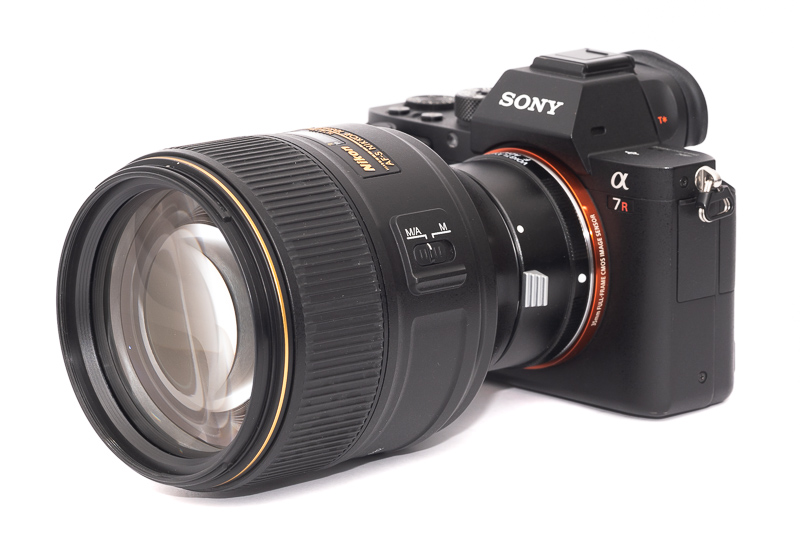
The Nikon AF-S 105mm 1.4E was one of Nikon’s last fast primes designed for the F-mount. And when it was released, I felt like it is supposed to be the replacement for an 85mm 1.2 lens Nikon users never got. Is this the best portrait tele lens ever made for the F-mount? Let’s try to find out.
Sample Images
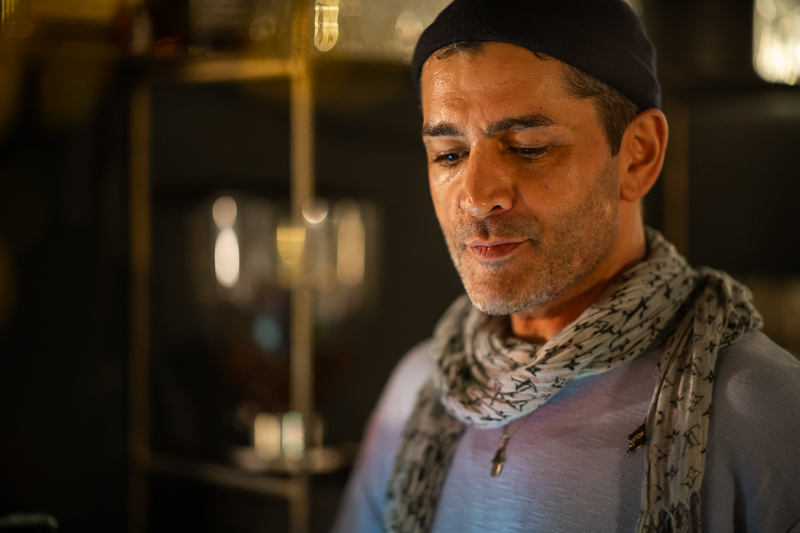

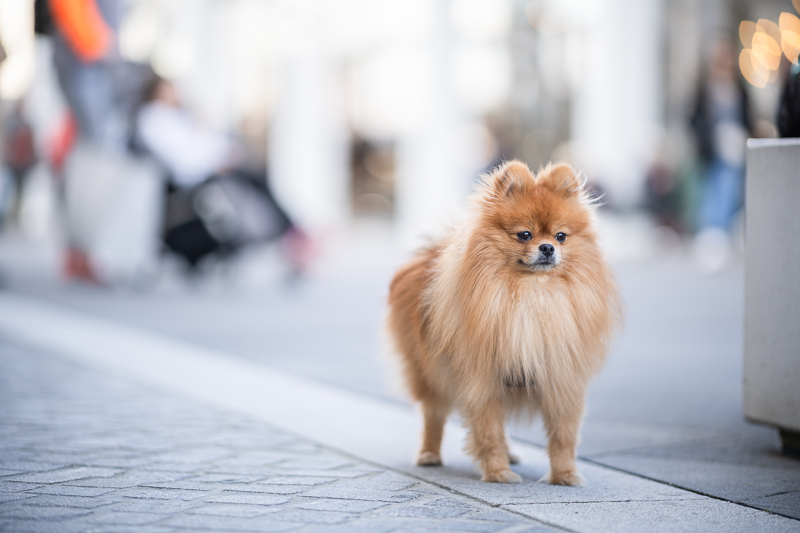
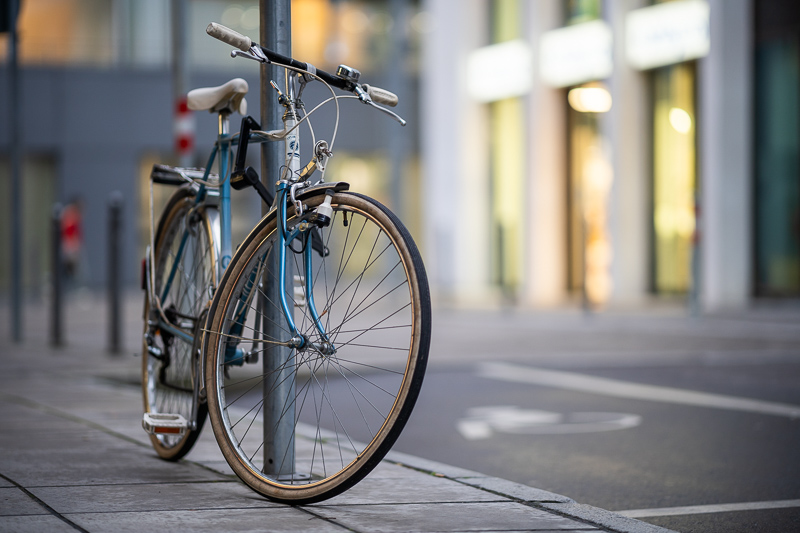
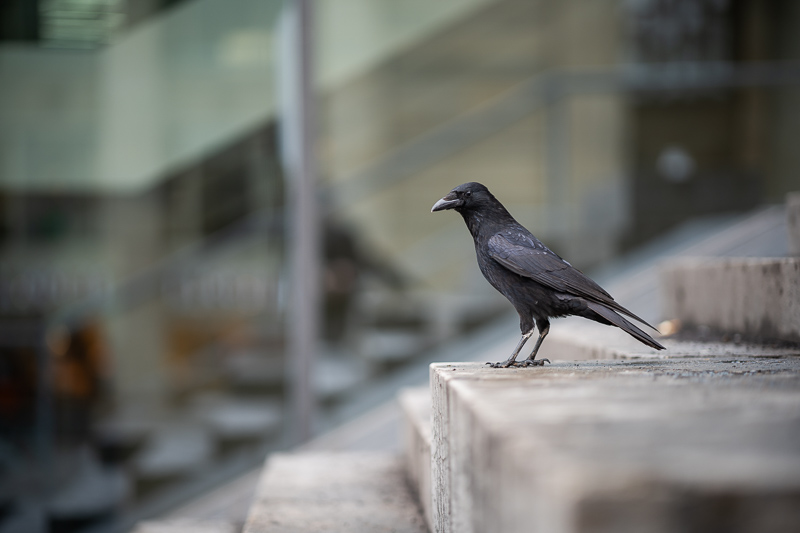
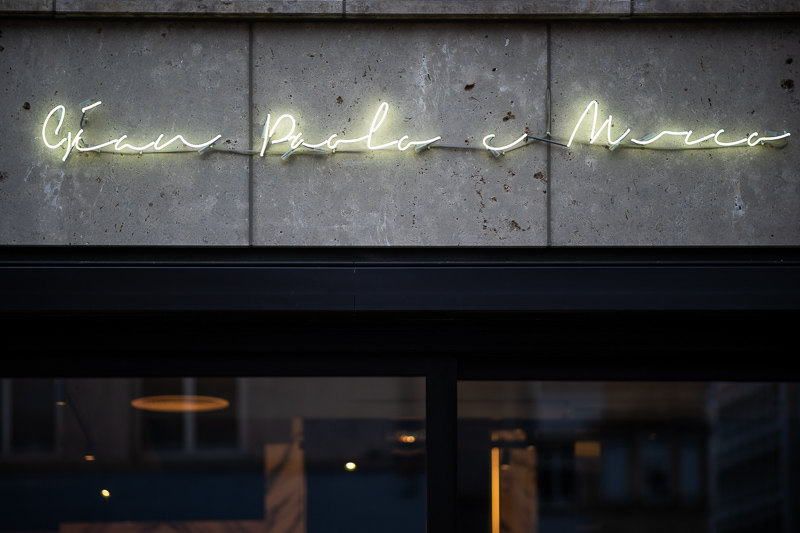
You can find many of the sample images in full resolution here.
Contents
Specifications / Version History
Nikon has a bit of a history making 105mm F-mount lenses and they also got faster over the years. The first famous one was the 105mm 2.5 in 1959 which had been replaced by the faster 105mm 1.8 in 1980. The first non-macro 105mm lens with AF was the Nikon AF-D 105mm 2.0 DC in 1993 and then it took another 23 years until this Nikon AF-S 105mm 1.4 was released in 2016. It has the following specifications:
-
- Diameter: 95 mm
- Field of view: 23.1° (diagonally)
- Length: 106 mm
- Weight: 982g (without hood, without caps)
- Filter Diameter: 82 mm
- Number of Aperture Blades: 9 (rounded)
- Elements/Groups: 14/9
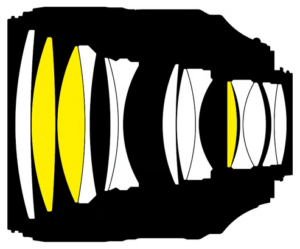
- Close Focusing Distance: 1.0 m
- Maximum Magnification: 1:7.0 (measured)
- Mount: Nikon F
buy from Amazon.com | Amazon.de | B&H | ebay.com | ebay.de (affiliate links) for $2.099 (new) or $1.200 (used)
Disclosure
This Nikon AF-S 105mm 1.4E was kindly provided free of charge by one of our readers for review purposes. Thanks a lot!
I only got to spend a limited time of roughly two weeks with this lens, so some sections may be a bit shorter than you are used to.
Handling/Build quality
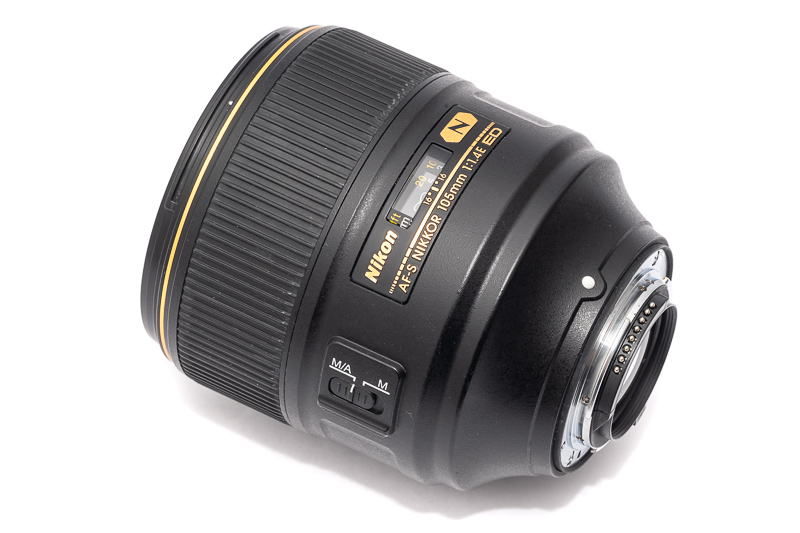
This Nikon AF-S 105mm 1.4E is part of Nikon’s higher end f/1.4 line up together with the 24mm 1.4G, 28mm 1.4E, 35mm 1.4G, 58mm 1.4G and 85mm 1.4G. In the past I owned and used the 24mm 1.4G and the 85mm 1.4G and this 105mm 1.4E fits in there very well.
The outer casing seems to be mostly made from high quality polycarbonate which is also true for the filter thread. There is a rubber gasket to be found at the bayonet.
The focus ring features a mechanical coupling to the helicoid (no focus by wire) and it takes about 120° from the minimum focus distance (1.0 m) to infinity.
The resistance is okay, not as nice as a real manual lens or some of Sigma’s better lenses.
Many Nikon AF-S G-lenses show some slack when changing the direction of rotation on the focus ring, luckily this is not the case here, so the lens can be focused precisely in manual mode.
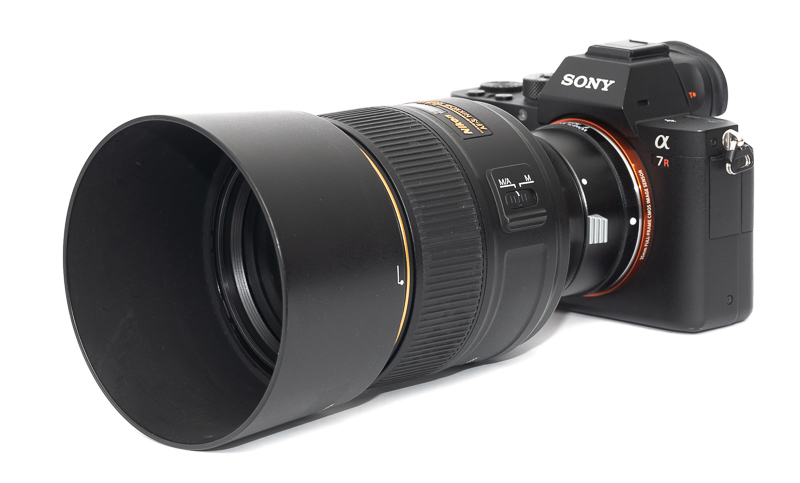
A huge plasticky lens hood it also part of the package. It can be mounted reversed for transport.

This Nikon AF-S 105mm 1.4E is a big and bulky lens. It is a bit longer and noticeably fatter than the Nikon AF-S 28mm 1.4E and also bigger than the Nikon AF-S 85mm 1.4G, which makes it the biggest and heaviest of all of Nikon’s AF-S f/1.4 primes.
Being an “E” lens – which means the aperture diaphragm is controlled electronically – you need a fancier adapter to be able to change the aperture value when using this lens on an E-mount camera like I did here. I tried the Commlite adapter in the past and that has been an awful experience. I can recommend the Monster LA-FE1 and LA-FE2 adapters though.
If you are a Z-mount user this lens works very well on the FTZ adapters.
AF performance
I only tested the AF with the Monster LE-FA2 AF adapter on Sony E-mount cameras. Here the AF worked surprisingly well – much better than I would have expected – but then I am also not shooting sports or fast moving animals/humans. If this is something you are interested in I would recommend to look for a review with a bigger emphasize on the AF performance.
Vignetting
light falloff
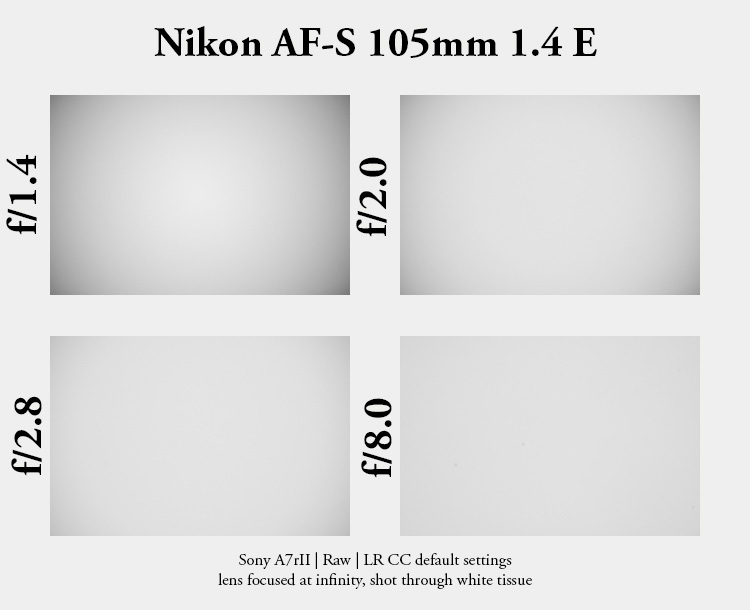
| f/1.4 | 2.4 EV |
| f/2.0 | 1.6 EV |
| f/2.8 | 0.9 EV |
| f/4.0 | 0.7 EV |
| f/5.6 | 0.4 EV |
| f/8.0 - f/16 | 0.3 EV |
The Nikon AF-S 105mm 1.4E shows a very typical performance for a fast portrait tele lens. Noticeable vignetting at the maximum aperture, almost none stopped down. The Sony FE 85mm 1.4 GM showed very similar vignetting figures.

It is recommended to have a look at this article first to get an idea how this brightness graph works.
optical vignetting
Fast lenses usually show a noticeable amount of optical vignetting. Without going too much into technical details optical vignetting leads to the truncation of light circles towards the borders of the frame.
In the center of the frame almost every lens will render a perfect circle, but only lenses with very low optical vignetting will keep this shape in the corners.
So in the following comparison we move from the center (left) to the extreme corner (right) and see how the shape of the light circle changes.
The amount of optical vignetting is really massive here. On the one hand one could argue, that for a better performance the lens would have needed to be as big as the Sigma 105mm 1.4 Art. On the other hand I wonder how much sense a 105mm 1.4 lens with this high optical vignetting actually makes.
And what is really embarassing: the older Nikon AF-D 105mm 2.0 DC shows less optical vignetting at f/2.0 and f/2.8.
Sharpness
MTF-Graphs
These are very interesting MTF graphs, as the peak in resolution and contrast is not reached in the center of the frame – very unusual. Over most of the frame these graphs promise very high contrast and good resolution though, but a bit of a drop in image quality towards the corners.
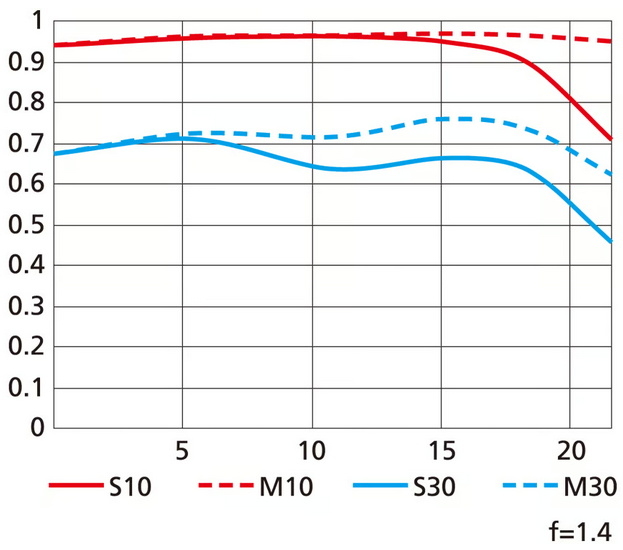
Most MTF-Graphs show calculated values that do not take into account manufacturing tolerances and sample variation. Furthermore they are usually calculated for infinity, so in the field and shooting at different distances a noticeable variation may be visible.
Focus Shift
Not only with rangefinder cameras but also with (D)SLRs focus shift is/was an issue. I am a bit surprised to see that a lens as complex and modern as this shows noticeable focus shift, especially between f/2.0 and f/2.8.
infinity (42mp Sony A7rII)
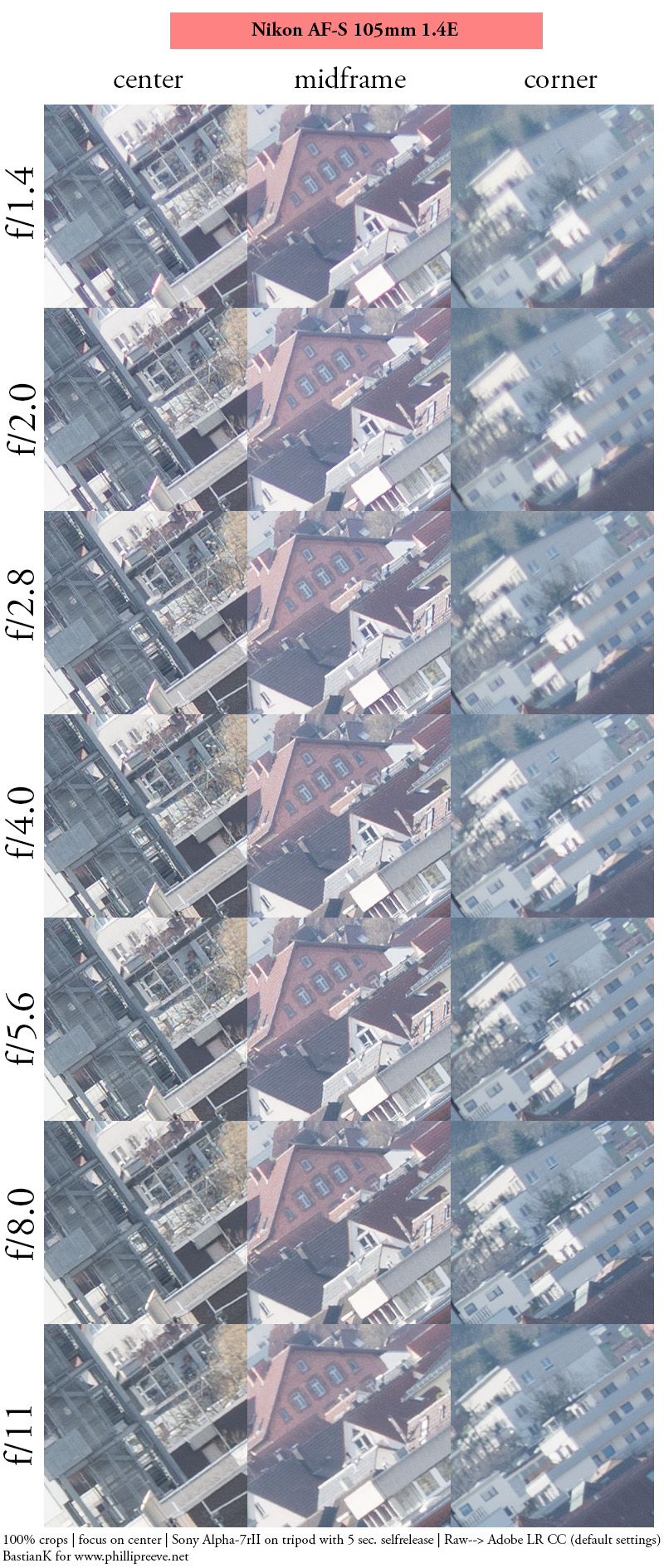

Generally the performance here matches what we saw in the MTF graphs: great performance in the center and the midframe from f/1.4, but not so great in the corners. We do see a bit of purple fringing at f/1.4 though.
For the corners to look best stopping down to f/8.0 is a good idea though.
portrait distance (2.5 m, 42mp Sony A7rII)
For portraiture it isn’t so important how flat the field is, it is more interesting to see what the sharpness is like when focused at different parts of the frame to take field curvature out of the equation.
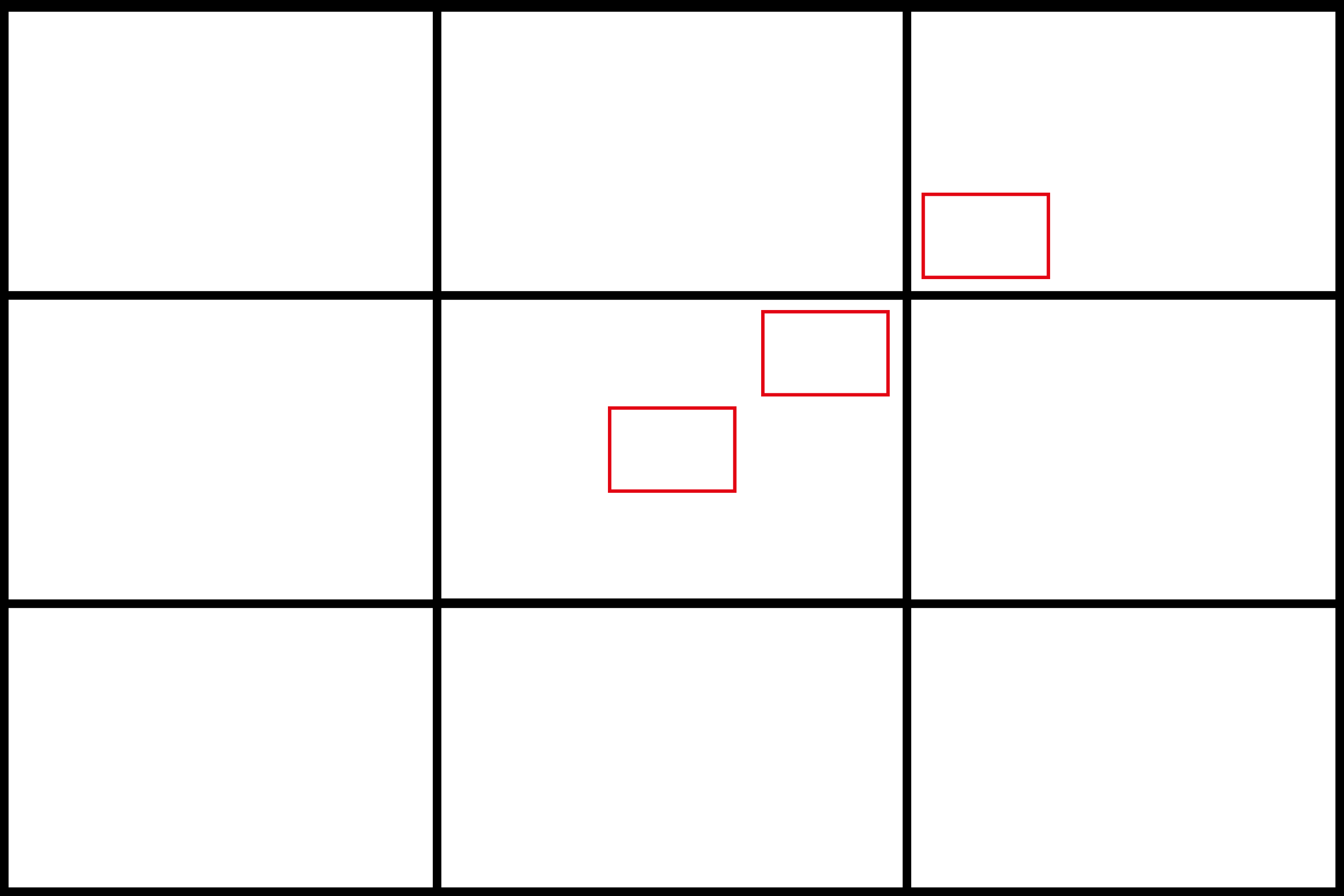
This is what I did here, I refocused for every shot and aperture to get the best possible result at different locations in the frame (center, inner midframe and outer midframe).
Focus distance was roughly 2.5 m and the circle of the dollar bill is more or less the size of a human eye.
f/1.4 <————> f/2.0
At this distance it really looks like the midframe area has higher contrast than the center of the frame. In the center stopping down to f/2.0 also makes a visible difference, whereas this isn’t the case in the midframe area. Interesting.
close (1.0 m, 1:7.3, 42mp Sony A7rII)
A minimum focus distance of 1.0 m is also typical for a fast ~100mm lens. I am actually a bit surprised that it takes stopping down to f/2.8 to get rid of the spherical aberration here though.
Flare resistance
As always evaluating flare is a complex matter since you can get any lens to look bad if you push it hard enough and a slight change of scenario can affect results a lot.
Because of the limited amount of time I got to spend with this lens I did not get the chance to properly evaluate the usefulness of the bulky lens hood. When it comes to fast tele lenses it is usually a good idea to use them, as is very apparent from the following pictures where I didn’t:
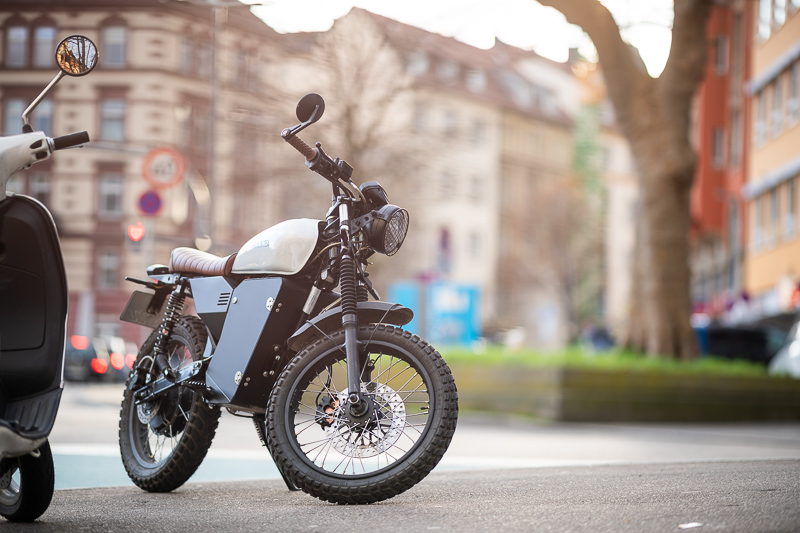

Veiling flare was an issue in many scenes and often when I did not expect it.

Coma
As far as I know some people also like to use fast tele lenses like this for deep sky astrophotography and here a good Coma correction is definitely welcome. Why I wouldn’t call the performance of the Nikon 105mm 1.4E particularly bad, there is definitely still some Coma visible – even stopped down to f/4.0.
If this is an aspect that concerns you, you should definitely have a closer look at the Sigma 105mm 1.4 Art, which corrects this aberration perfectly already at f/1.4.
Distortion
The Nikon AF-S 105mm 1.4E shows a small amount of pincushion distortion – typical for short tele lenses. Correction profiles are readily available (e.g. in Lightroom) so this is not really an issue.
Bokeh

With an entrance pupil size of 75mm we can expect to see a lot of blur here and not only at close distances.


I said it a few times before, subject separation is not all about the background blur, it also depends on the contrast and resolution in the focal plane. Here this Nikon lens is a strong performer. We have a clearly defined focal plane and a lot of blur in the background, leading to a strong separation that makes the in-focus subject stand out.


Depending on the background and the focus distance, optical vignetting is very strong though, leading to noticeable “cat’s eye” shaped highlights towards the edges which is always something that looks a bit unnatural to me.

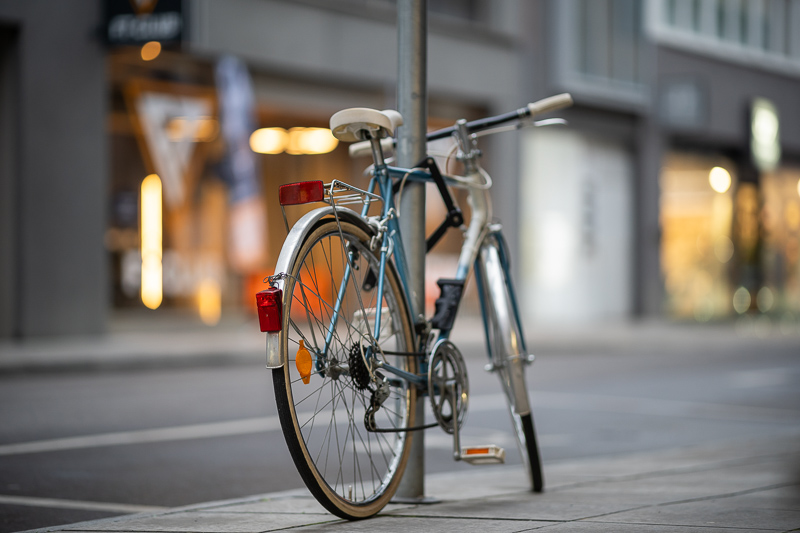
If you can look past the high optical vignetting, I think this lens creates a beautiful bokeh. Looking solely at this category, I would prefer the Sigma 105mm 1.4 (which is also available for F-mount), but that is not really a portable lens and I am not sure I would be willing to carry that around. Compared to the Nikon AF-S 85mm 1.4G I would definitely prefer this slightly longer 105mm lens though.
Sunstars
The Nikon AF-S 105mm 1.4E uses 9 rounded aperture blades – not the greatest news, if you are looking for distinct sunstars. The alignment of the aperture blades is pretty good though, so you can actually create decent sunstars from f/8.0 to f/16.
If you want to learn more about this topic have a look at this article.
Chromatic aberration
lateral
The amount of lateral CA is low, they are easy to correct, nothing to worry about.
longitudinal
I have said it before: correcting longitudinal CA has not been the number one task of Nikon’s optical engineers for a pretty long time. We see at least a medium amount of bokeh fringing and even stopped down to f/2.8 the green and magenta outlining is still visible.
When it comes to purple fringing the situation is not that bad. We do see some at f/1.4, but it is pretty much gone by f/2.0.
Also in this category the Sigma 105mm 1.4 Art is doing a better job.
Conclusion
good
|
average
|
not good
|
Except for the Zhong Yi 135mm 1.4 this Nikon AF-S 105mm 1.4E and the Sigma 105mm 1.4 Art are the longest lenses as fast as f/1.4 and when this lens was released in 2016 it was a bit of a novelty. I think it was Nikon’s aim to create a portrait lens that is more spectacular than the Nikon AF-S 85mm 1.4G and I think they succeeded at that, as it has a bigger entrance pupil and at the same time offers a better optical performance (sharpness and CA correction).
I am by no means a fan of the high optical vignetting, but it was probably a good idea not to create another lens as big as the Sigma 105mm 1.4 Art.
Now in the mirrorless era, I think this Nikon AF-S 105mm 1.4E is a bit of a hard sell though. For a similar price you can get the Sony FE 85mm 1.4 GM which is a little shorter, but in my opinion creates a more appealing look. And on top of that we also have highly capable yet affordable AF lenses from e.g. Samyang these days, that are probably a smarter choice for many people.
buy from Amazon.com | Amazon.de | B&H | ebay.com | ebay.de (affiliate links) for $2.099 (new) or $1.200 (used)
Alternatives
Sigma 105mm 1.4 Art:
I already talked about the Sigma in many of the categories above. It is safe to say that the Sigma is the better corrected lens and this is true for pretty much every aberration and it doesn’t even cost more. The problem is, that the Sigma is way heavier and bulkier and I see some people being okay with carrying around the Nikon 105mm 1.4, but not the Sigma. Another advantage of the Sigma is, that it is also available for various camera systems.
buy from amazon.com | amazon.de | B&H | ebay.com | ebay.de (affiliate links) for $1599
Nikon AF-S 85mm 1.4G:
During the DSLR era this is a lens I used a lot. Long story short: the 105mm 1.4E is a much better lens when it comes to sharpness and especially CA correction. I don’t remember it having that high optical vignetting, but if I had to decide between just these two, I would probably go for the 105mm.
buy from amazon.com | amazon.de | ebay.com | B&H (affiliate links) for $750 used
Sony FE 85mm 1.4 GM:
This is the lens that replaced the aforementioned Nikon AF-S 85mm 1.4G for me. Regular readers already know: this is my favorite portrait lens out of all the lenses I have used so far. It combines very good (not class leading if you are looking for blemishes on faces at 100% though) sharpness at f/1.4 with the smoothest bokeh and the lowest optical vignetting I came across in a fast 85mm lens so far.
buy from amazon.com | amazon.de | B&H | ebay.com | ebay.de (affiliate links) for $1798
Sigma 85mm 1.4 Art DG DN:
The Sigma is a bit more compact than the aforementioned Sony lens, a bit sharper at f/1.4 and offers faster AF. The bokeh doesn’t look as good to me though, and that is what I care about in a portrait lens.
buy from Amazon.de | B&H | ebay.com (affiliate links) for $1099
You can find many more alternatives in our Guide to 85-135mm Portrait Lenses.
Sample Images

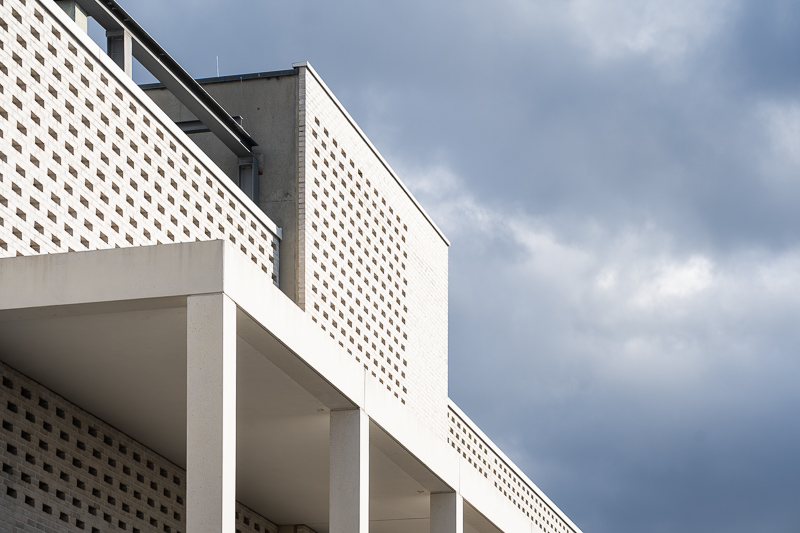
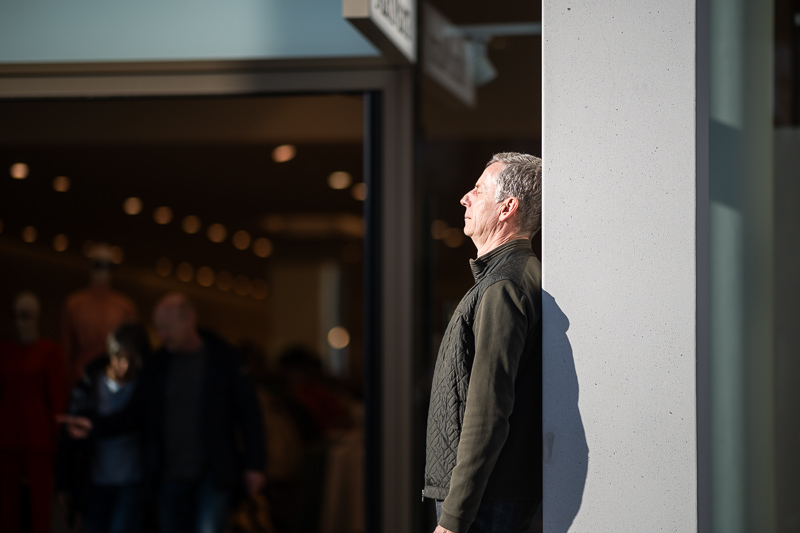







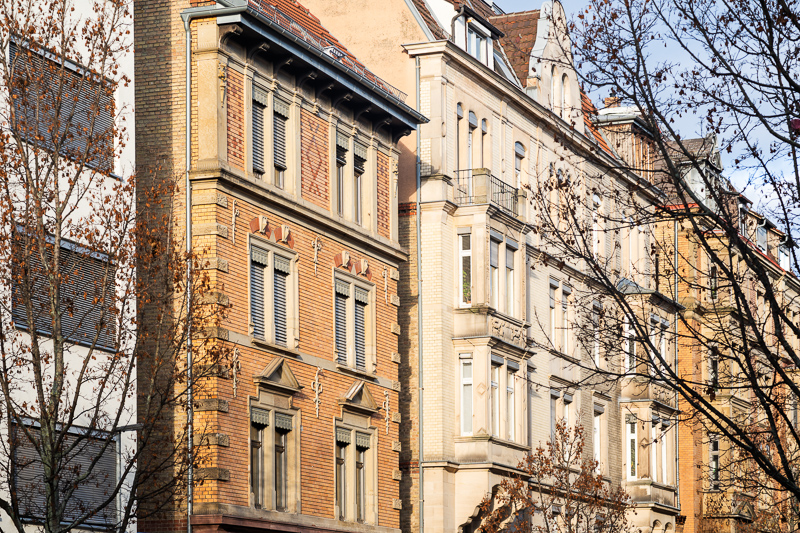
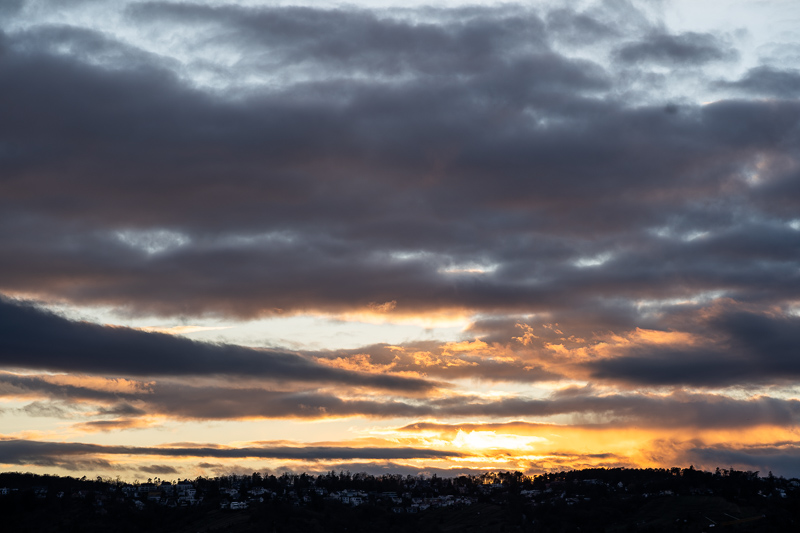
You can find many of the sample images in full resolution here.
Further Reading
- Guide to 20-28mm wide angle lenses for Sony FE cameras
- Review: Zhong Yi 135mm 1.4
- Review: Laowa 35mm 0.95 – The World’s fastest 35mm lens
- What makes a picture good?
- Technical Knowledge
Support Us
Did you find this article useful or just liked reading it? Treat us to a coffee!
![]()
![]()
![]() via Paypal
via Paypal
This site contains affiliate links. If you make a purchase using any of the links marked as affiliate links, I may receive a small commission at no additional cost to you. This helps support the creation of future content.
Latest posts by BastianK (see all)
- Review: SLRmagic 50mm 0.95 Hyperprime LM - July 5, 2025
- Full Resolution Pictures getting fixed - July 4, 2025
- Analogue Adventures Part 42: A wedding with Eastman Double-X 200 - July 2, 2025



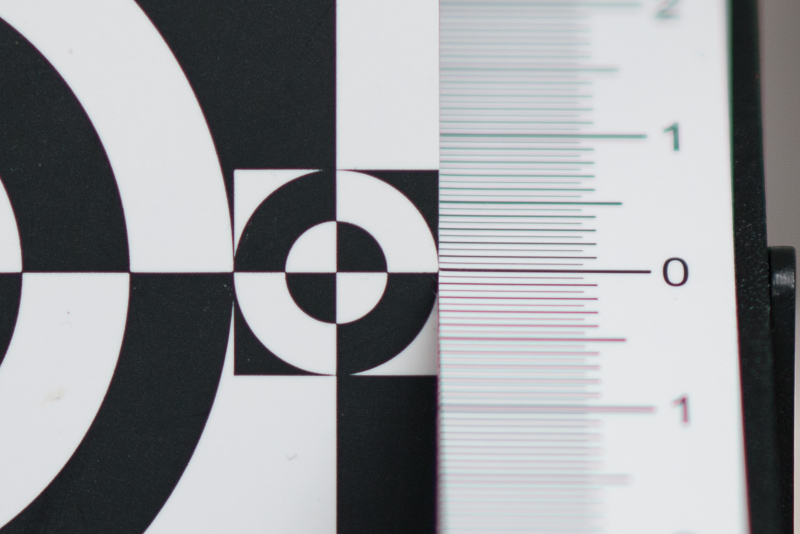
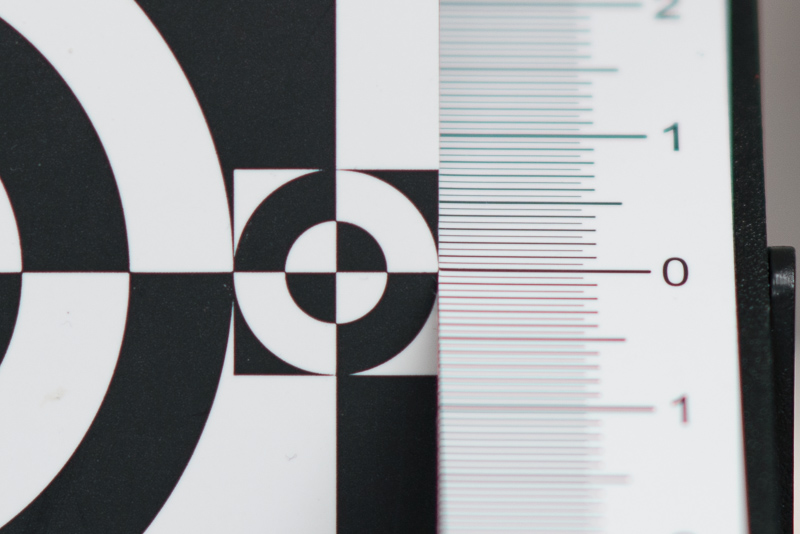
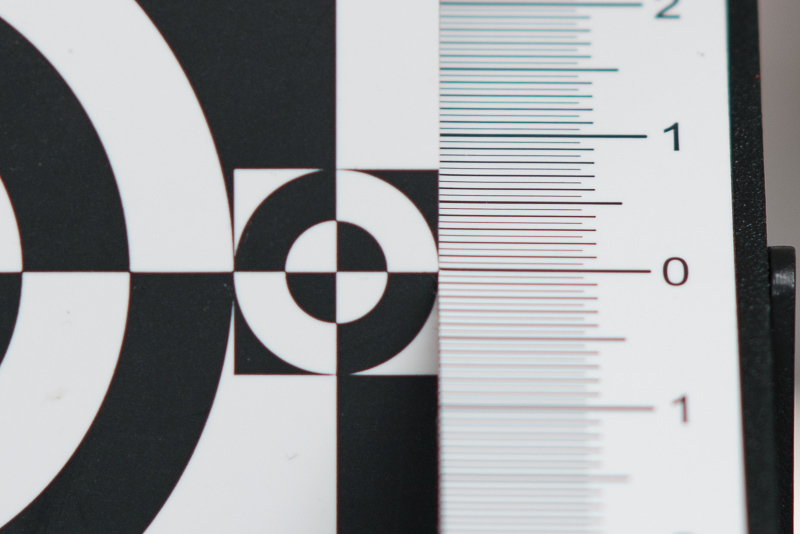


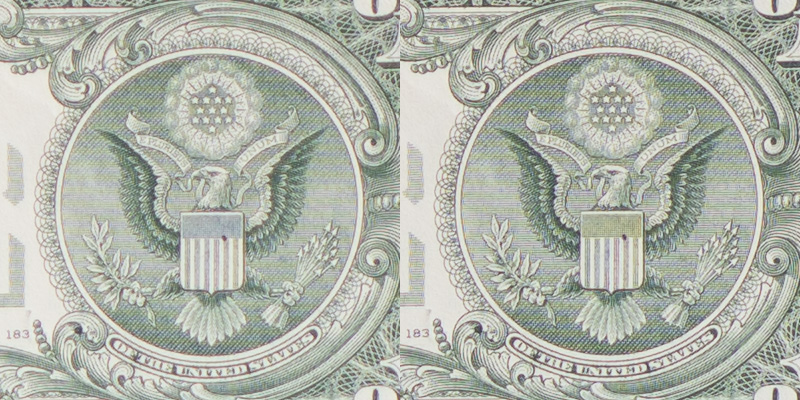



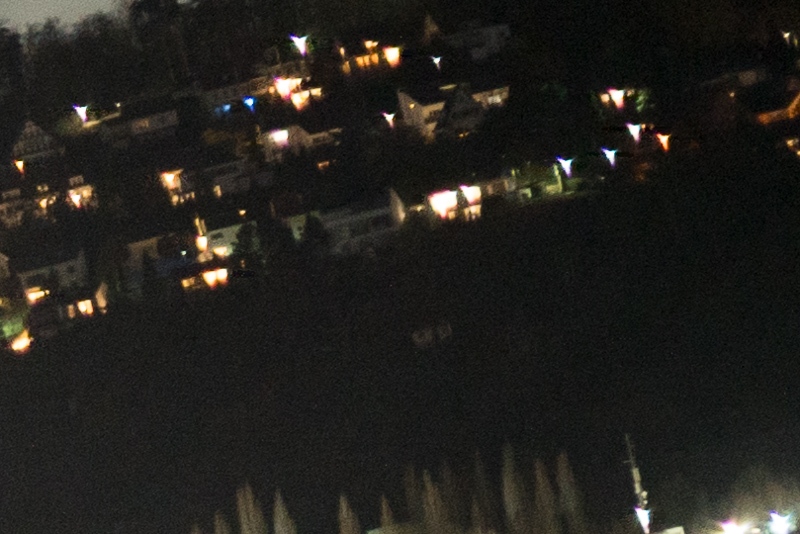
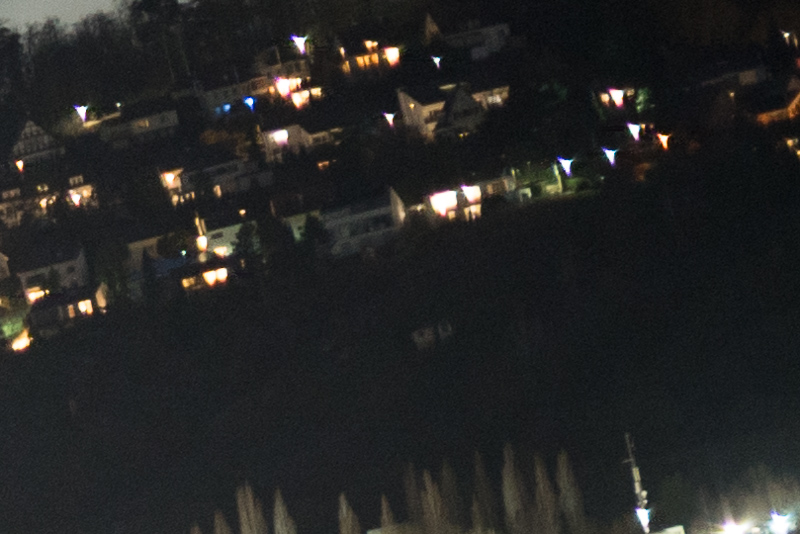
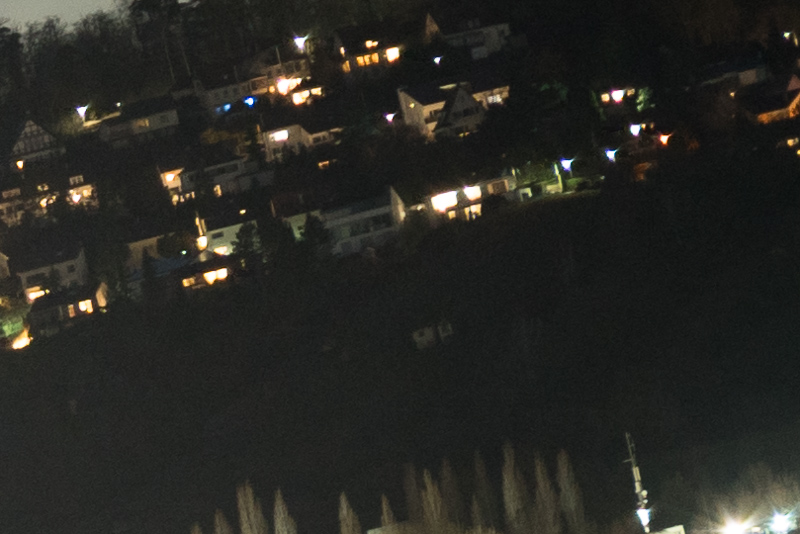
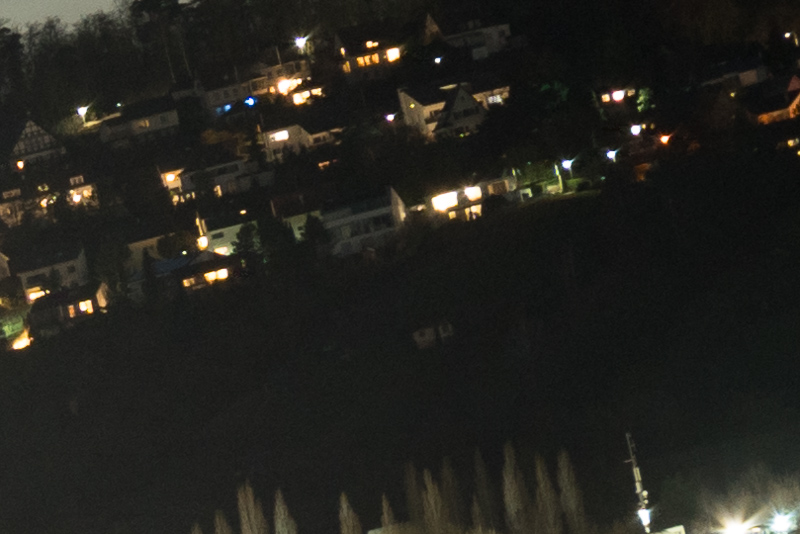
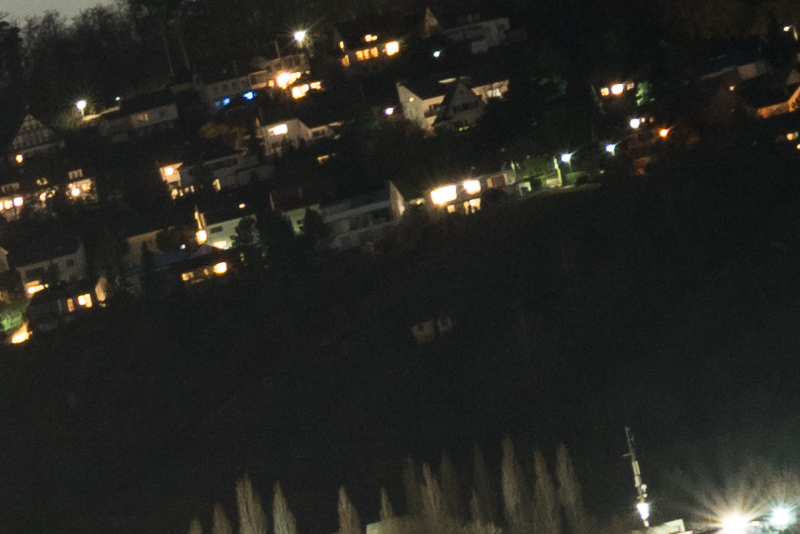
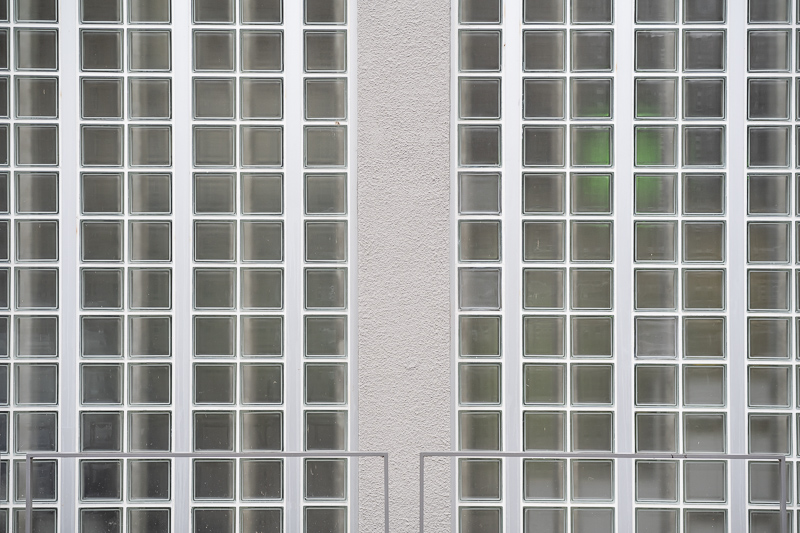
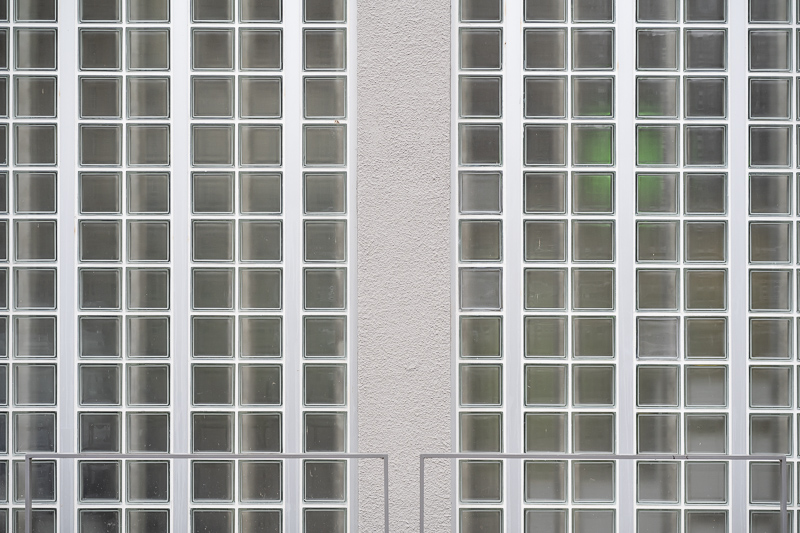
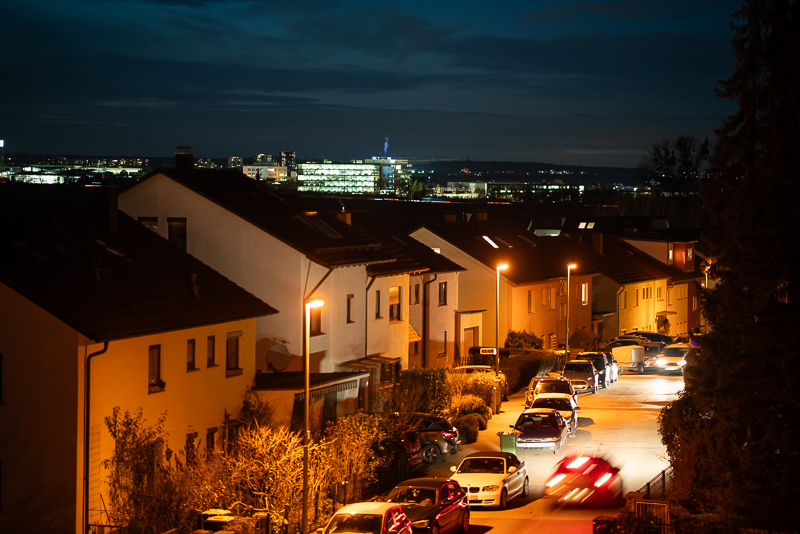
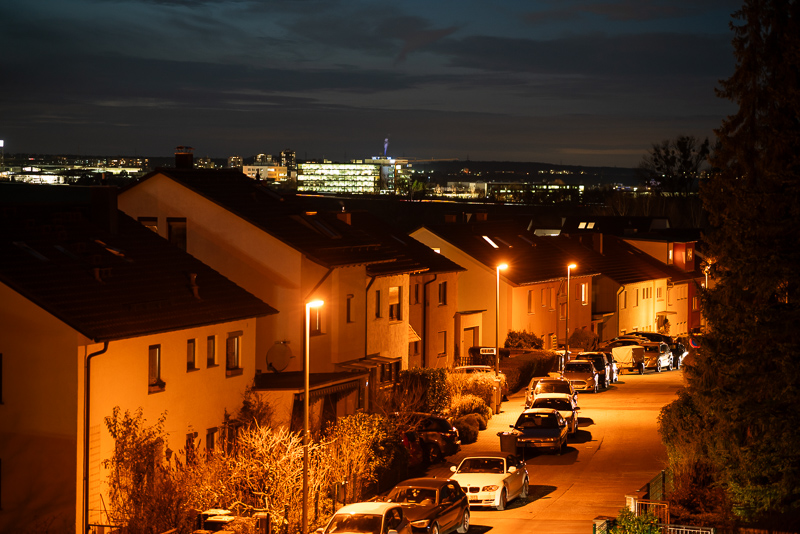
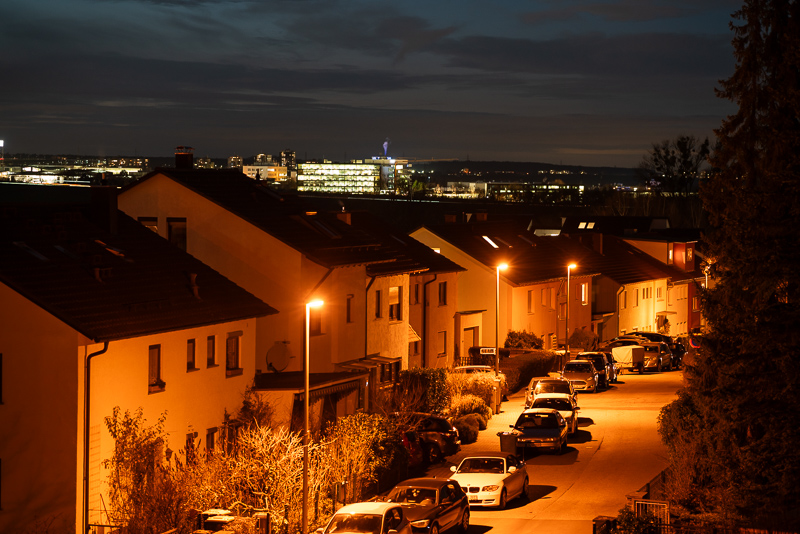
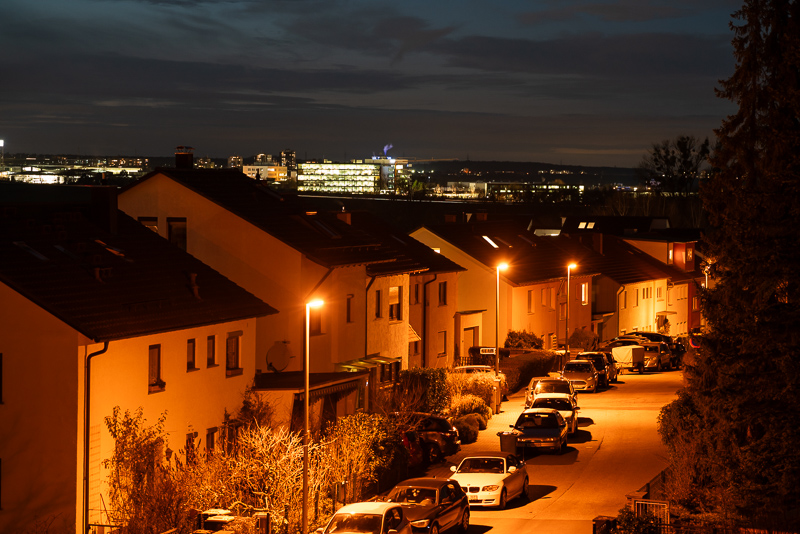
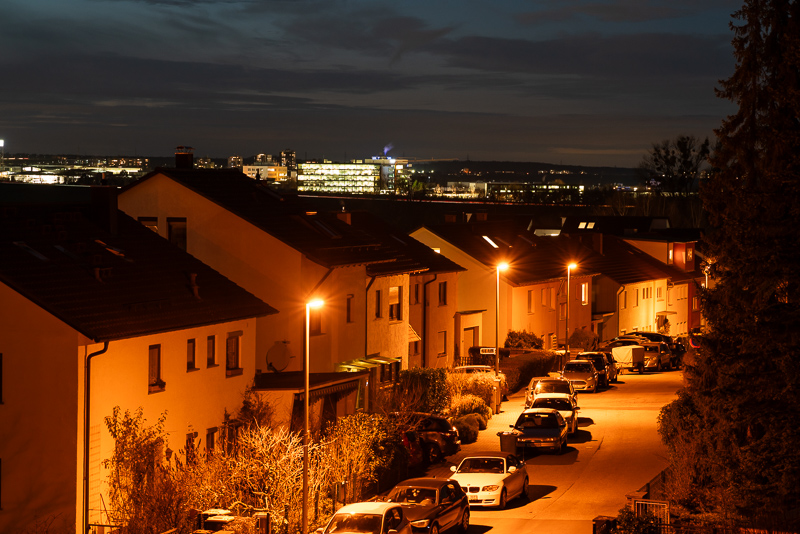
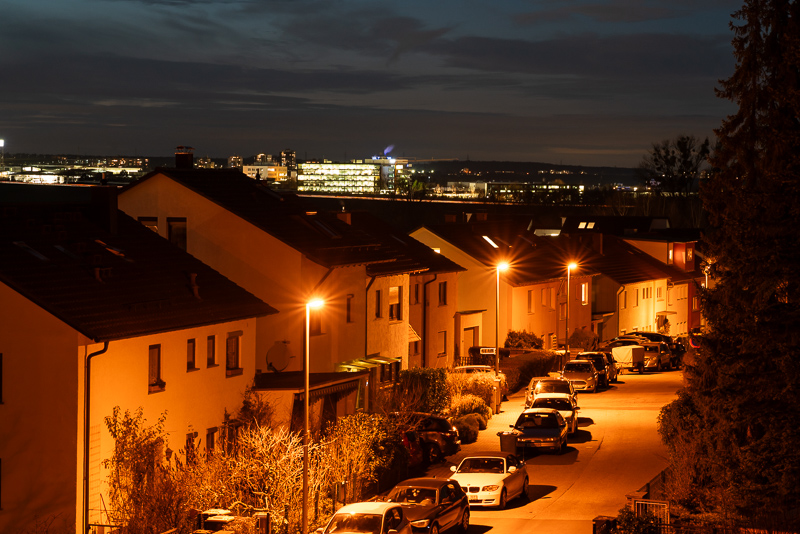
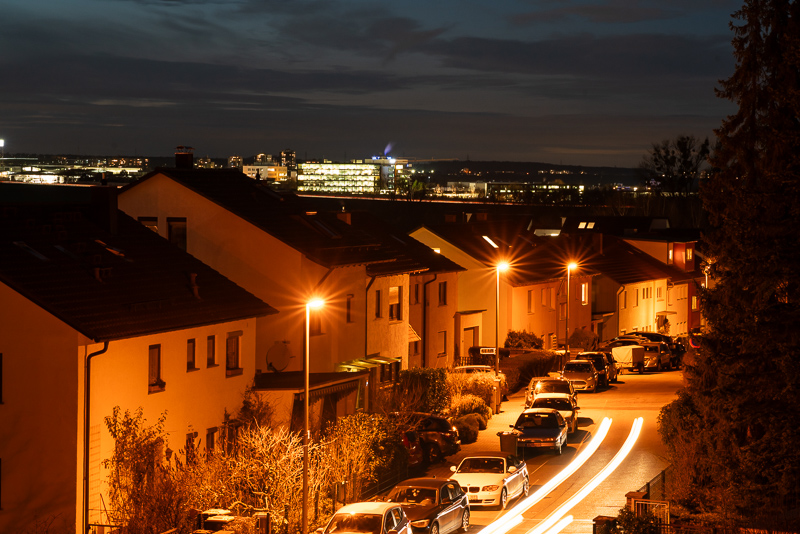
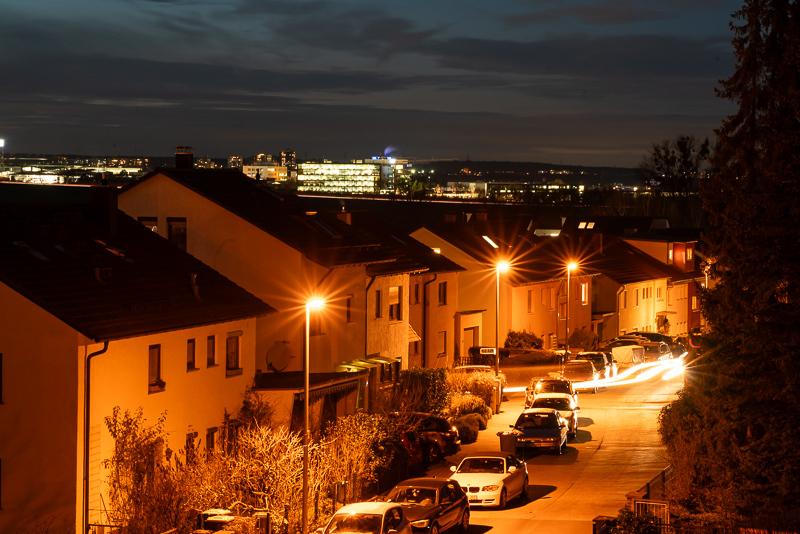
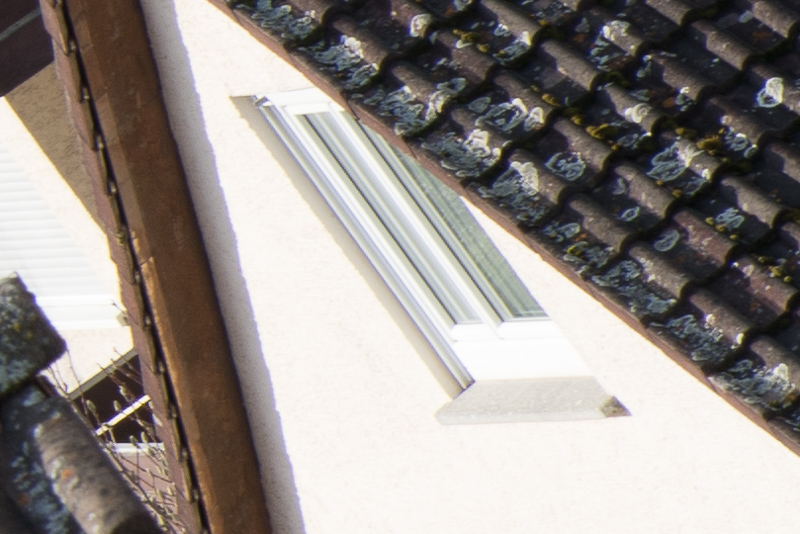


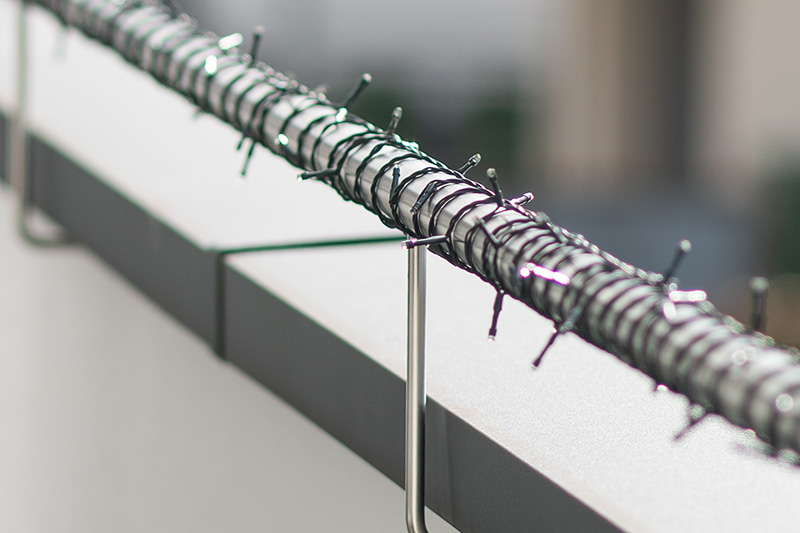
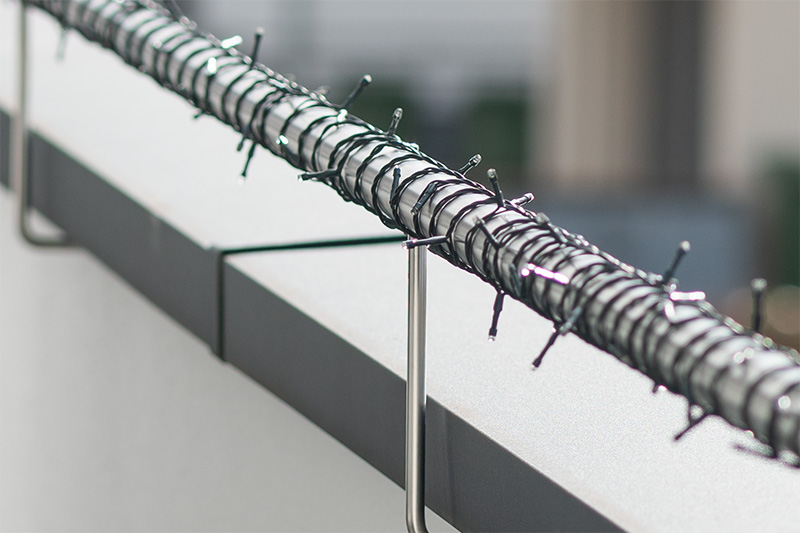
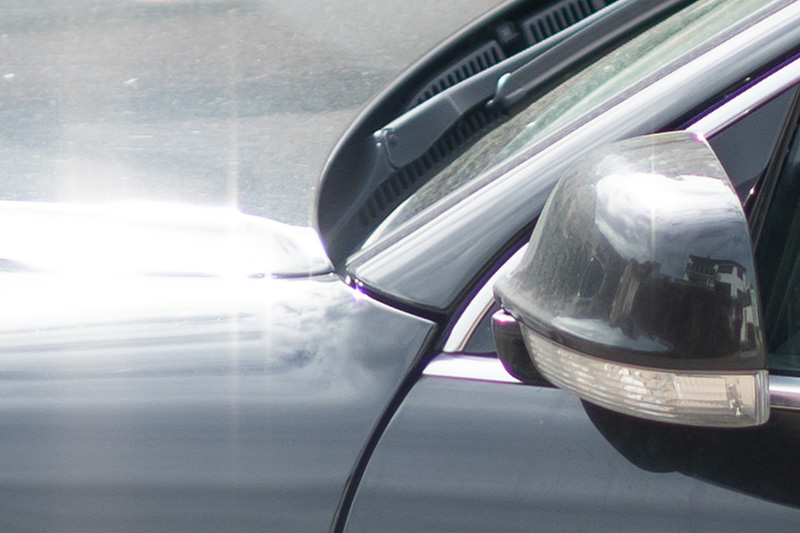
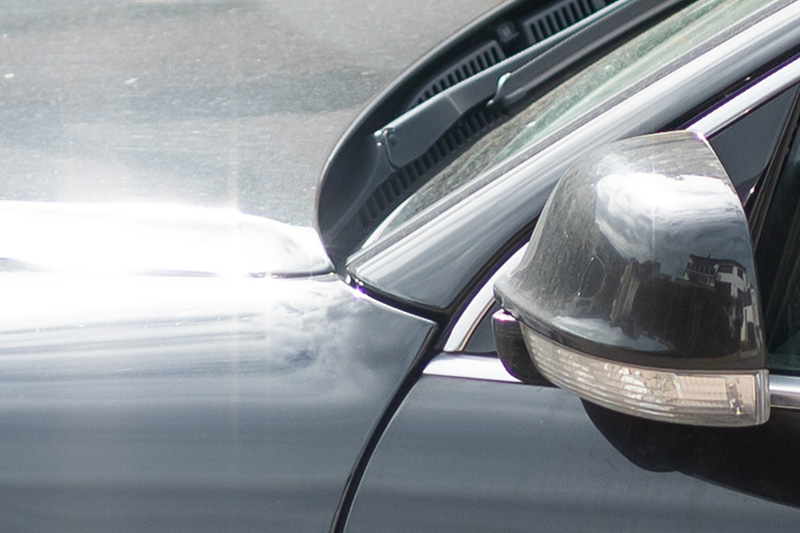

Huh, nice review as always, I’m surprised by the low weight and the cat’s eye, guess they go hand in hand as you said. I’m also surprised a lot of people don’t seem so see the more pronounced cat’s eye in most fast 85s outside the GM, or worse they’ll actually argue the GM has no advantage there… It came up a lot when the Mk II was released…
I think it is difficult for older DSLR lenses to do the same job as designed for mirrorless lenses. A lot of mirrorless lenses utilize often significant software corrections. A number of Sony lenses have huge vignette and distortion uncorrected . Some Sony lenses have literally black corners
I did use the Nikon lens professionally { weddings, portraits events etc } . But for a lot of shooting situations in real life use the F/1.4 aperture lenses are not always practical
You are really comparing apples and oranges here.
None of the fast Sony primes features black corners when the distortion is uncorrected.
You seem to be thinking of Sony zooms, or their smaller/slower primes. I’m actually not against leveraging software corrections when warranted, but most (if not all) the GMs (and the 20/90 G) don’t lean very heavily on them.
Which fast Sony prime did you have in mind? Heck even Samyangs don’t lean too heavily this way, Sigma has been using software corrections to a greater degree than SY. I’m genuinely curious because you started talking about mirrorless primes (fair) then singled out Sony ones (presumably ones as fast as this Nikon)…
If anything the biggest corner Sony tends to cut (with their fastest primes) seems to be focus breathing, which they do then compensate for in software, and most stills photos don’t care about.
The Viltrox 75mm 1.2 AF E Pro APS-C
is also an Alternative.
somehow.
https://phillipreeve.net/blog/review-viltrox-75mm-1-2-af-e-pro-aps-c/
That one will give about as much DoF control as an 85/1.4 tho, rather than this 105/1.4, since it’s equivalent to a 112/1.8… It looks amazing for crop shooters tho, it’s an interesting in between FL and smaller than a FF 135/1.8.
Thank you for the great review!
This is still a great lens that I lusted after for quite some time, but on the Z-Mount it falls behind 85/1.2 or 135/1.8 Plena, which are even better optimized for shooting portraits.
On F-Mount, maybe one of the best portrait lenses there are, yet not perfect:
1. Double contour lines in transition zones
2. Axial CA
3. E-type aperture means it will not work on film bodies, so…
I so want this from Sony or Samyang for bokeh panos, but now that we have the Samyang 135mm f/1.8 (with the same sized entrance pupil) at less than 800g it has to be lighter than that now too 😛
That will be difficult 🙂